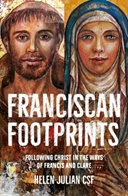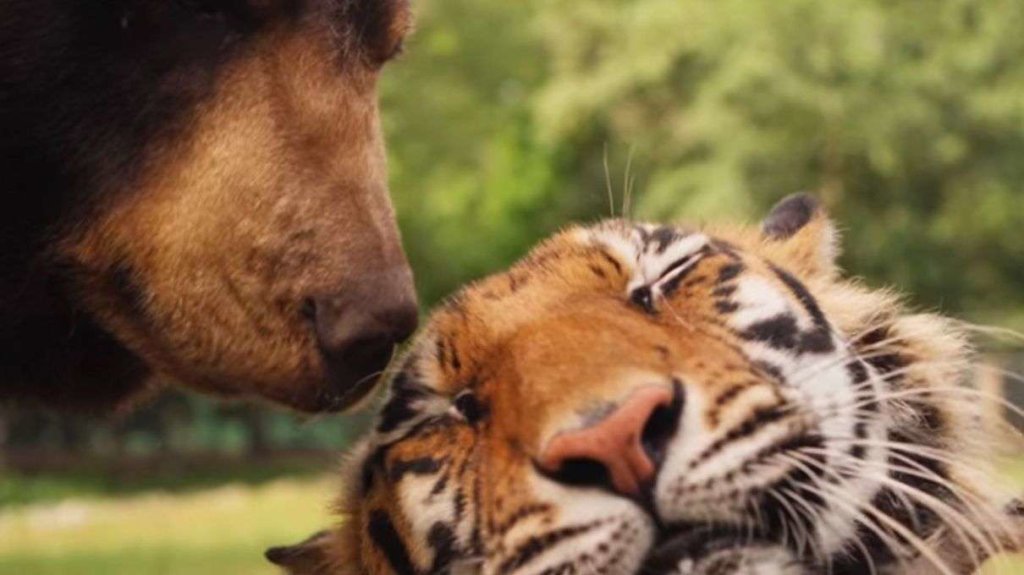Dear Brothers and Sisters of Penance,
Greetings from the Misty Mountain, from Pirrial Clift tssf
I have a friend who lives interstate: we have long chats on the phone about books we are reading and our understandings of ‘Life, the Universe, and Everything’. Recently we spoke of penitence, that hoary, hairy hobgoblin that made life utter misery for many Christians living in the shadow of a fierce and frosty God. My speaking of penitence from a perspective influenced by St. Francis and other friendly Saints intrigued her, and she asked me to write my thoughts down. I offer them here for your consideration as the strangest Holy Week the world has experienced in a long time breaks open most poignantly Jesus’ profound identification with human suffering.
Penitence as a way of life.
In a group of pithy sayings written for his Brothers – ‘the Admonitions’ – Francis said: ‘Consider O human being, in what great excellence the Lord God has placed you, for he created and formed you in the image of his beloved Son according to the body and to his likeness according to the Spirit. And all creatures under heaven serve, know and obey their Creator, each according to its own nature, better than you. And even the demons did not crucify him, but you, together with them, have crucified him, and are still crucifying him by delighting in vices and sins.’
Let’s unpack that a little: the way I understand it, Sister Water for example, praises God by being water – pure, humble and precious. Brother lark by being a lark – the flowers by being flowers. Similarly my daughter Nicole, who won first prize in the Mortlake Show with a handmade teddy bear, found the praise came to her, the creator … ‘Oh isn’t it lovely! Isn’t she clever!
Alone amongst God’s created beings, humans are not content with being what we were created to be – human – made in the image and likeness of God, able to love and reason and create. Not content with being made in God’s likeness, we want to BE God. We crave the power that belongs only to God. [Scripture says, for example Ps 62.11 Once God has spoken, twice have I heard this; that power belongs to God. Verse 12 continues ‘and steadfast love belongs to you, O Lord.’ Power over other human beings and other creatures is sought and fought over by humanity, and alas! It is not accompanied by love. Power to put people down, to corrupt, to violate, to harm in many sad and cruel ways.
In St Francis’ time our Sister Mother Earth was still seen on the whole as a force to be reckoned with – the terrors of the wild oceans, maps marked by signs saying ‘Here be dragons’; the decimation of whole populations by the unseen forces of disease -there were many conundrums which modern science has unlocked. If Francis were alive today he would know that human power has been unleashed against our Sister, Mother Earth herself! As a species we abuse and degrade the one who feeds us in our greedy lust for wealth and power. For instance in many places Sister Water is no longer pure, she has been polluted and defiled…
When we see human beings behaving cruelly we say their behaviour is inhumane – it is an aberration, it is not normal. Human beings were created to reflect God’s goodness. St Irenaeus of Lyon, born in Smyrna Turkey in 150 AD – a theologian, and one of the Church Fathers, said “The Glory of God is a human being fully alive.”
Jesus was fully human, fully humane, as his behaviour while he walked on Mother Earth revealed. Fully humane, as he rejected human glory and success and gave himself for others. No skerrick of lust for power over others lurked in his heart; he was all about celebrating humility, healing, giving new life in various ways – and forgiving people’s sin.
Jesus saw sin as offending, wounding, hurting God. Sin was to be wept over, as he wept over Jerusalem I can get that. I know a woman whose son is in jail, she is grieving and weeping. She asked me to pray, but I have no idea what he’s done – it is so painful she cannot speak the words. We are God’s children, though we often forget it. Jesus, like a mother, is grieving and weeping over our sins and lack of love.
The canticle in APBA [p428] written by Anselm begins:
Jesus, as a mother you gather your people to you:
you are gentle with us as a mother with her children.
Often you weep over our sins and our pride,
tenderly you draw us from hatred and judgement….
Sin also harms the sinning one. Wounds to the soul, the spirit. Wounds which hamper the flourishing of relationships between us and others, and God – sometimes we even hate ourselves.
What some holy people have said about repentance.
Julian of Norwich tells a story that goes something like this: A Christian waits beside the Lord, bursting with love; ready to serve. The Lord makes a request and off she runs, eager to please – but she slips and falls. Up she gets and off she goes, but again she falls, hurting herself so that now she must walk. Too soon she stumbles into a hole and when she clambers out, realising that she cannot go on, she limps back to Jesus, covered in bumps and bruises, wounded and bleeding, her head hanging low – she has failed. Jesus gently lifts her up, heals her wounds, embraces her lovingly, kisses her better – then sends her off, happy and free again.
John Mountney, in a book on Julian entitled Sin can be a Glory, argues that sin can work for us rather than against us if after our inevitable falls we immediately and habitually turn back to Jesus for healing.
Repentance is turning around. Turning from what is harmful towards God; looking at Jesus; occupying ourselves with whatever brings us closer to God is the foundational message of Lent, and was Francis’ foundational message.
St Clare, praying day and night for decades before the San Damiano Crucifix, spoke of gazing at Jesus. Her words have been put to music by Breige O’Hare OSC.
Look, look on Jesus, poor and crucified<
look on this holy one who for your love has died,
And remember as you contemplate the sacred mystery
This Jesus who you gaze upon
loves you most tenderly.
Look, look on Jesus see he is calling you.
Run to him and do not fear, for his love is true.
Let your heart desire him and burn with deepest love
Look how he shines on you
the one from heaven above.
Look, look on Jesus, upon the sacred tree
And as you pass along the way, ponder, attend, and see
if there is any sorrow, like the sorrow he endures
and wonder at the amazing love
which is for ever yours.
Look, look on Jesus see he is calling you.
Run to him and do not fear, for his love is true.
Let your heart desire him and burn with deepest love
Look how he shines on you
the one from heaven above.
Jesus the God of love.
Clare of Assisi
St Francis preached repentance wherever he went – as Jesus himself did. Francis was head-over-heels in love with Jesus, and kept him always in his heart, on his lips and before his inner eyes.
St. Teresa of Avila describes our journey toward God in the Interior Castle. To the baptised she says that Jesus is in the very centre of the castle/our soul, and he is shining, shining. We make our way to him through a myriad passages and rooms with stairs randomly leading in and out; up and down… our task is to keep the light in view; if we cannot see him shining faintly in the distance, we are going the wrong way.
It is imperative that we are aware of our sin. Imagining ourselves perfect is a recipe for disaster, every vestige of humility goes down the drain, and humility is the key to holiness. However it is very important to remember our sin is powerless in the face of God’s eternal love and mercy.
For all the wickedness in the world, that humanity can do or think, is no more to the mercy of God than a live coal dropped in the sea. William Langland
St Bonaventure speaks of the burden, the weight of sin. It weighs so heavily that sometimes we struggle under the load. The psalmist laments about this too. Ps 38. 5
The tide of my iniquities has gone over my head,
their weight is a burden too heavy to bear.
My wounds stink and fester because of my sinful folly…
An overburdened person walks with his head hanging down; his focus is on his misery and the weight on his back. If he were only to look up and fix his eyes on the shining Son – Bonaventure explains – he could be free again.
Focusing on the most important thing.
Allowing oneself to become obsessed with one’s sins is not what repentance is about. Especially when the matter is serious the ancient steps of contrition, confession, and restitution remain vital, and any consequences must be borne with as much grace as we can muster. Then it’s time to re-set our course – turn our eyes away from ourselves, and gaze upon the beauty and goodness of Christ. … beloved, whatever is true, whatever is honourable, whatever is just, whatever is pure, whatever is lovely, whatever is commendable, if there is any excellence and if there is anything worthy of praise, think about these things. Phil.4
One way of understanding repentance as a way of life is to imagine being aboard a little boat. You set your compass according to your desired destination and set sail – the great ocean swells and currents, the buffeting winds and rocky outcrops, don’t permit sailing as the crow flies: when the wind drops or you sleep, the boat drifts with the tide. You need to repeatedly correct your course, checking your compass to keep heading in the right direction.
[Search Google Images for Odilon Redon, ‘The Mystical Boat’.]
Those who brood darkly on their sins for too long lose sight of Christ! This unhappy state can lead to a kind of inverted pride, where one comes to believe that ‘my’ sins are so vast that God cannot or will not forgive, putting the lie to the scriptures! Others, who gaze on Christ, returning to him constantly after slipping and falling, will find healing and wholeness.
As Margaret Attwood wrote:
As you travel on through life sister, whatever be your goal,
keep your eye upon the doughnut and not upon the hole.
Which just about sums it up.
pax et bonum,
Pirrial



